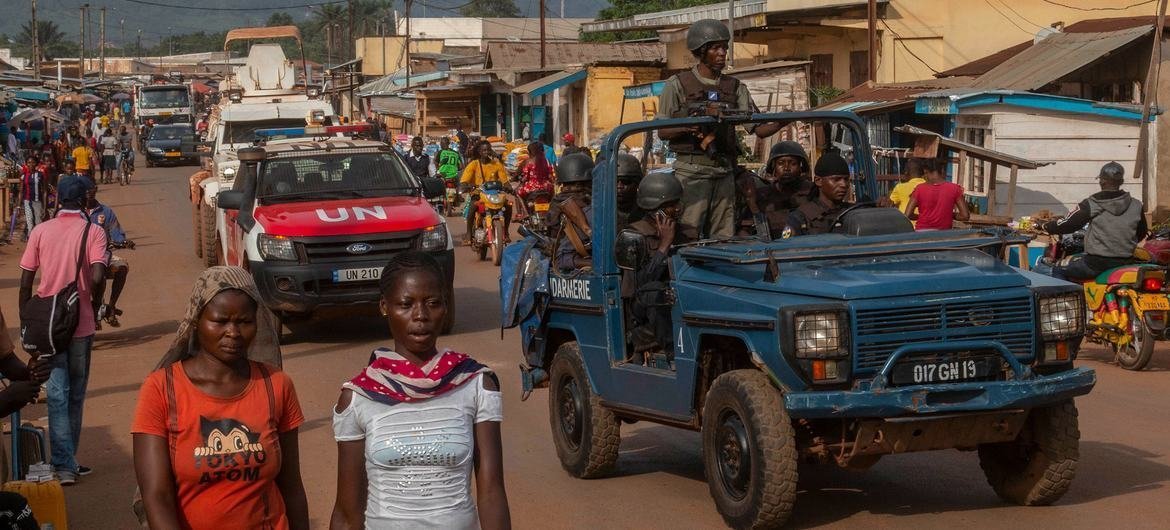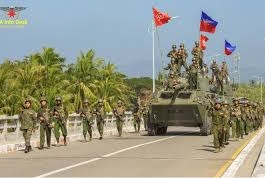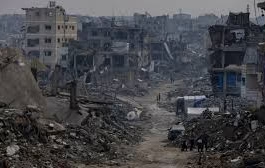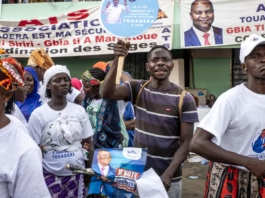Introduction to the Upcoming Elections
The Central African Republic (CAR) is approaching a significant political milestone as it prepares for its upcoming local, legislative, and presidential elections. These elections represent a critical opportunity for the nation to reinforce democratic governance, a fundamental objective that stems from its tumultuous past marked by conflict and instability. The elections are not merely a routine civic exercise; they are pivotal in determining the future trajectory of CAR toward peace and recovery.
Scheduled to take place within a context heavily influenced by the 2019 peace agreement, the elections embody the hopes of the Central African populace for a more peaceful and democratic society. The peace agreement, which sought to end years of violence and unrest, established a framework intended to usher in a new era of stability. However, the successful implementation of this framework hinges significantly on the electoral process. By facilitating citizen participation, the elections aim to legitimize the political landscape and empower individuals to voice their preferences for governance.
The political climate in CAR has been fraught with challenges, including ongoing violence from armed groups and a fragile security situation. These factors create a complex backdrop against which the elections will unfold, influencing voter sentiment and participation rates. The international community closely scrutinizes these elections, recognizing their potential to either catalyze progress or hinder the peace process. Therefore, the upcoming elections are not only a national concern but also resonate in regional and global arenas.
In summation, the elections signify a vital step forward for the Central African Republic, highlighting the urgency and importance of restoring democratic principles and promoting long-term stability. As citizens head to the polls, the outcomes will reflect their aspirations for governance and future peace. The stakes are high, and the world watches closely as CAR navigates this pivotal moment in its history.
Challenges in Electoral Preparations
The Central African Republic (CAR) is at a critical juncture as it approaches its upcoming elections. However, numerous challenges threaten the electoral preparations, significantly hampering the process. A pivotal player in this context is the United Nations Multidimensional Integrated Stabilization Mission in the Central African Republic (MINUSCA). This mission aims to support stabilization efforts, yet it faces substantial hurdles that complicate its role in facilitating the electoral framework.
Firstly, financial constraints have emerged as a primary obstacle in the preparation for the elections. Insufficient funding has led to delays in the establishment of necessary infrastructure and logistics required for the electoral process. With competing priorities within the national budget, securing the necessary resources for a successful election becomes increasingly difficult. This is exacerbated by ongoing security issues, which further divert attention and committed finances from electoral preparations.
Additionally, logistical challenges pose significant barriers to executing timely local elections. The vast rural expanses of CAR, coupled with inadequate transportation networks, complicate the distribution of voting materials and the deployment of electoral staff across the country. These logistical issues not only contribute to the delays but also risk disenfranchising rural communities who may struggle to access polling stations due to geographic and infrastructural limitations.
Moreover, the interplay between political factions creates an atmosphere of uncertainty that further complicates electoral preparations. The potential for violence or political unrest can lead to heightened tensions around the election period. As a result, international entities, including MINUSCA, must maintain their focus on ensuring security while also fostering an inclusive environment for electoral participation.
Ultimately, these challenges have significant implications for the electoral process in the Central African Republic. The delays and obstacles faced may undermine the legitimacy of elections if not adequately addressed, creating long-term implications for democratic governance in the region.
Persistent Mistrust and Security Issues
The political landscape in the Central African Republic (CAR) has been characterized by persistent mistrust between the government and opposition parties, a dynamic that significantly threatens the stability of the upcoming elections. This mistrust is not merely anecdotal; it is a deeply ingrained sentiment stemming from years of political strife and violence. The opposition groups often view the government as unrepresentative and untrustworthy, leading to heightened tensions and an environment where dialogue is fraught with suspicion. Such conditions discourage voter engagement and create significant barriers to peaceful electoral processes.
Moreover, the presence of armed groups exacerbates these tensions considerably. Various militia factions operate throughout CAR, undermining state authority and obstructing efforts to maintain peace. These groups engage in violent confrontations not only with government forces but also disrupt civilian life, leading to a humanitarian crisis in many regions. The widespread violence and lawlessness feed into the sentiment of mistrust, as citizens grapple with safety issues while attempting to navigate the electoral landscape.
The ongoing conflict in neighboring Sudan has further complicated security issues in CAR. Incursions by Sudan’s Rapid Support Forces (RSF) have been reported, with these armed units collaborating with local militias, intensifying instability. Such cross-border dynamics disrupt efforts to secure peace and unity within CAR, as armed groups often exploit these situations for their advantage, complicating the government’s ability to exert control. Consequently, the impacts of external conflicts intertwine with domestic issues, creating a multifaceted crisis that poses significant challenges ahead of the elections. As the political environment continues to evolve, addressing this persistent mistrust and the ongoing security issues will be critical for the future stability of the Central African Republic.
Humanitarian Crisis and Its Implications
The Central African Republic (CAR) is currently grappling with a humanitarian crisis that has severely impacted the lives of its citizens. This situation is the result of a complex interplay of political instability, armed conflict, and social strife, leading to widespread suffering and a deterioration of living conditions. Key exacerbating factors include rampant sexual violence, violations of child rights, and the ongoing threats faced by UN personnel. The humanitarian landscape in CAR is marked by deep-seated challenges that not only affect individual lives but also pose significant implications for the broader security and political environment.
Sexual violence remains a pressing concern, with numerous reports indicating systematic abuse within conflict zones. Women and children are disproportionately affected, and these violations of human rights contribute to a culture of fear and instability. Furthermore, the rights of children are under constant threat, with instances of recruitment into armed groups and denial of access to education pervasive throughout the country. Such issues severely hinder long-term progress and the potential for peace, impacting the fabric of society.
In addition to these human rights violations, the safety of UN personnel has also come into question. Recent incidents, including a grave attack on a MINUSCA patrol, highlight the dangers confronted by peacekeeping forces in the region. These attacks not only jeopardize the lives of those serving but also undermine international efforts to stabilize the situation. The humanitarian crisis is, therefore, intricately linked to the political landscape; as the country approaches elections, the upcoming political process must address these urgent issues. Failure to prioritize humanitarian needs could further complicate the electoral landscape, creating a cycle of violence and instability that threatens both the integrity of the elections and the prospects for lasting peace in the Central African Republic.




